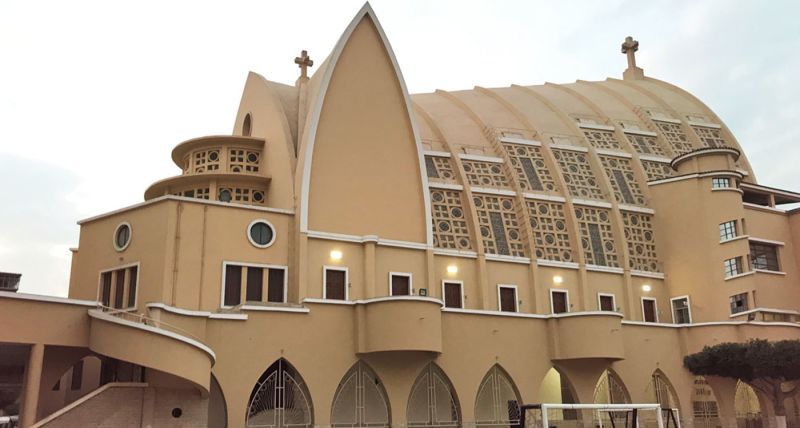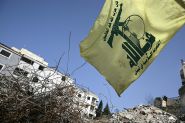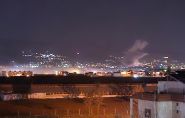
They are 400,000 students—half of them in Lebanon—deeply rooted in Francophonie, immersed in a culture of unrivaled richness and diversity.
Teaching these 400,000 students and instilling in them the values of coexistence—while half of them envision their future beyond the Arab Francophone world where they grew up—is one of the most sobering findings of the 5th Francophone Catholic Schools Conference, held at La Salle College in Cairo on February 6-7.
Organized at the initiative of L’Œuvre d’Orient, the conference was titled “Passing on Knowledge in Times of Adversity”—a theme that aptly reflects the current political reality of a region steadily losing its elites.
The event brought together around 470 school leaders and representatives from 300 institutions across the Arab Francophone world, including Lebanon, Syria, Jordan, Iraq, Egypt, the Palestinian Territories and Turkey.
Featuring several roundtable discussions, the conference opened in the presence of Coptic Catholic Patriarch Ibrahim Ishak, Apostolic Nuncio to Cairo Archbishop Nicolas Thevenin, French Ambassador to Egypt Éric Chevallier, writer Robert Solé, Charles Personnaz, president of the Fonds des Écoles d’Orient and, of course, Monsignor Pascal Gollnisch, director general of L’Œuvre d’Orient.
The figures mentioned earlier offered a glimpse of the threats looming over a sector that L’Œuvre d’Orient is struggling to sustain, in part through French public funding allocated for Francophonie.
In Lebanon, there are 63 Francophone schools, both religious and secular, of which only 40 are Catholic. These Catholic institutions educate 20% of Lebanese students, while the rest are either secular or affiliated with non-Christian communities, such as Makassed, Orfan and Mahdi. Yet, they all face the same challenges.
A key speaker at the conference, Father Joseph Nasr, president of the General Secretariat of Catholic Schools in Lebanon and the Middle East-North Africa (MENA) region, outlined four categories of challenges affecting Francophone education in Lebanon: political instability, poverty, emigration and the marginalization of Christians. “By marginalization,” he explained, “I mean the phenomenon whereby Christians are forced to live and evolve in environments alien to their culture.”
These challenges are present, with variations unique to each region. However, at first glance, the political and economic challenges seem to overshadow the purely academic ones.
“Is this region doomed to perpetual crisis?” questioned Monsignor Gollnisch, who is deeply attuned to the upheavals shaking the Middle East and introducing an element of instability that skews all predictions. “We work with young people at an age defined by crises and choices. It is our responsibility to guide them,” he further emphasized.
Academic Challenges
In addition to the challenges arising from political and economic factors, there are also significant academic and educational issues, including low salaries, lack of resources, inadequate administrative and teaching staff, and the impact of technology and the digital world, among others.
In this context, the testimony of Sister Marcelle Karam, president of the educational office of the Sisters of the Holy Family of Saint Vincent de Paul and head of the educational office of the Sisters of Charity, reflects the situation at nearly all schools in Lebanon: teachers are underpaid due to the collapse of the Lebanese pound, and the compensation they receive in dollars is inconsistent, as parents—who are the sole source of funding—cannot always afford it. This, evidently, creates a vicious cycle that can only be broken through sacrifices.
Addressing the challenge posed by the growing dominance of English, Franco-Egyptian writer Robert Solé offered a perspective that should resonate with the Lebanese, “Defending the French language is about defending pluralism against uniformity. It’s not about turning away from English. I always talk to students about the importance of having a strong command of Arabic, English and a chosen cultural language like French. The future belongs to trilingual speakers!”
As for French Ambassador Éric Chevallier, he emphasized “the importance of coexistence and the sense of fraternity among communities, which enables them to preserve the diversity and pluralism that define this region.”
To highlight this reality, Sister Marcelle Karam noted that in one of their schools in Beirut’s southern suburbs, which had been bombed, only 14 out of 700 students do not belong to the Shiite community.
But the greatest challenge facing young Francophones in the Middle East, and even more so Catholic youth among them, is the “silent invasion” of social media.
The most insightful response to this challenge came from Apostolic Nuncio Nicolas Thévénin, who stated, “There is no point in banning without first educating. We live in a highly permissive world, and we must not believe that our societies will always be immune to its influence. With social media, it no longer takes a generation to manipulate young people, and the divide between rural and urban areas has diminished. Schools and parents must therefore be supported in helping young people understand the concept of freedom. A young person who realizes they can become enslaved by false needs or an excessive desire for validation becomes more aware of the need to set boundaries on what social media offers. They will learn not to depend on majority opinions out of fear of being excluded. They will develop a ‘politeness of the heart,’ putting their intellect at the service of their conscience. It is the responsibility of Catholic schools to remind parents of this duty and to teach young people to take ownership of their actions and mistakes.”
Crucial words to conclude a conference of great significance.



Comments